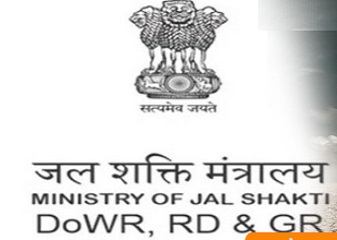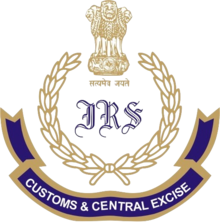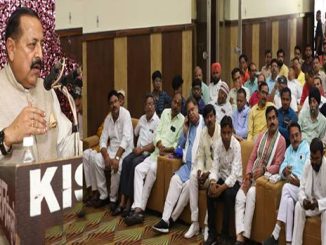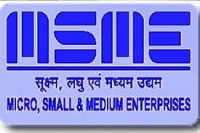
PIB News Update: The Union Minister for Jal Shakti, Shri Gajendra Singh Shekhawat launched Phase II of Swachh Bharat Mission (Grameen) [SBM (G)] at a National Dissemination and Consultation workshop here today. He was joined by the Union Minister of State for Jal Shakti and Social Justice & Empowerment, Shri Rattan Lal Kataria, Secretary, Department of Drinking Water and Sanitation (DDWS), Shri Parameswaran Iyer, Principal Secretaries/Secretaries-in-charge of Rural Sanitation, Mission Directors (SBMG) of States/UTs, senior officials from the Ministry (GoI), and other invited state nodal officers engaged with SBM(G).
Inaugurating the workshop, Shri Shekhawat lauded the enormous success of Phase-I of the SBM (G) and said that the cabinet approval of Phase II of the Mission is great recognition to the signification achievements made under SBM (G) under the visionary leadership of the Prime Minister Shri Narendra Modi towards providing universal coverage and access to safe sanitation in rural areas in five years since its launch on 2nd Oct, 2014.
Phase – II of the SBM(G) will focus on sustaining the gains made under the programme in last five years in terms of toilet access and usage, ensuring that no one is left behind. It will ensure that effective solid and liquid waste management (SLWM) is instituted in every Gram Panchayat of the country.
Speaking on the occasion, Shri Kataria congratulated SBM (G) team of Central and State Government officials and lakhs of Swachhagrahis for their tireless efforts in last five years in triggering a massive behaviour change across the country among rural community members and making Swachh Bharat Mission a true Jan Andolan.
Secretary, DDWS, Shri Parameswaran Iyer, elaborating on the mandate of SBM (G) Phase II, informed that it will be implemented from 2020-21 to 2024-25 in a mission mode with a total outlay of Rs. 1,40,881 crores. This will be a novel model of convergence between different verticals of financing. Of this Rs. 52,497 crore will be allocated from the budget of Department of Drinking Water and Sanitation, while the remaining amount will be dovetailed from the funds being released under 15th Finance Commission, MGNREGS and revenue generation models particularly for solid and liquid waste management.
The Solid and Liquid Waste Management (SLWM) component of Open Defecation Free (ODF) Plus, ODF Plus, will be monitored on the basis of output-outcome indicators for four key areas: plastic waste management, bio-degradable solid waste management (including animal waste management), greywater management and fecal sludge management. The SBM-G Phase II will continue to generate employment and provide impetus to the rural economy through construction of household toilets and community toilets, as well as infrastructure for SLWM such as compost pits, soak pits, waste stabilisation ponds, material recovery facilities etc.
As part of the workshop and in the run up to International Women’s Day on 8th March, the Union Minister released a study done by the UNICEF and Bill and Melinda Gates Foundation (BMGF) on the impact of the SBM(G) on rural women. The study – Impact of the Swachh Bharat Mission (Grameen) on the convenience, safety and self-respect of women in rural India – surveyed 6,993 women across the 5 states of Bihar, Madhya Pradesh, Maharashtra, Rajasthan and Uttar Pradesh, in February, 2020, and indicated that the increased access to household toilets has led to the improvement in the Suvidha, Suraksha and Swabhimaan of women in rural India.
Key findings:
- 93% women feel safer from assault by not going out in the open to defecate
- 91% women save up to one hour of their day, earlier spent on walking to defecation sites
- 88% of women are proud to own a toilet
Earlier, Union Cabinet on 19th February, 2020 approved the SBM Phase II which will help rural India in effectively handling the challenge of solid and liquid waste management and will help in substantial improvement in the health of the villagers in the country. Since the launch of the SBM-G in 2014, over 10 crore toilets have been built in rural areas; over 5.9 lakh villages, 699 districts, and 35 States/UTs have declared themselves Open Defecation Free (ODF).







Leave a Reply
You must be logged in to post a comment.